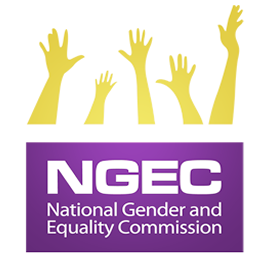By Raisa Okwaras
The National Gender and Equality Commission (NGEC) of Kenya yesterday held a quarterly meeting with stakeholders in the children’s sector to brainstorm and shape the way forward on the safety of children during the incoming electioneering period.
The theme of the meeting was Enabling child protection and security during the 2022 General Elections in Kenya. The two main agendas were the development of the National Strategy on child pregnancies and the preparedness of stakeholders and all parties at large on child protection during the August 2022 general elections in Kenya.
According to the APHRC 2020 report, every year, 13,000 girls drop out of school in Kenya due to pregnancy. A KDHS 2014 study report indicates that about one in five girls in Kenya between the ages of fifteen and nineteen are pregnant or have already had a baby. Also, complications during pregnancy and childbirth are the leading cause of death for fifteen to nineteen-year-old girls globally.
Furthermore, child mothers face poorer long-term educational and economic outcomes, with babies born to them facing higher risks like pre-term delivery and a higher risk of low birth weight.
IDinsight revealed that the PASU 2021 report shows that pregnancy and lack of money for school fees were the two main reasons behind the failure of sixteen percent of girls and eight percent of boys in Kilifi, Kisumu, Nairobi, and Wajir counties to return to school in 2021. Also, twenty-nine percent of the girls in the PASU study reported getting married after the covid-19 pandemic broke out with forty-two percent confirming that they were married off after getting pregnant.
With that, it is the mandate of every stakeholder to be instrumental in the development of the National Strategy on Child Pregnancies. For instance, the Return to School Policy is a great initiative that allows child mothers to dream beyond pregnancy or early parenting.
Some of the recommendations the stakeholders gave was a need to emphasize the rightful parenting styles and sex education to curb the number of teenage pregnancies in Kenya. In addition, they stated a need to engage with teen boy fathers as they are mostly sidelined in these discussions. What came up is that sometimes, male children are victims of child pregnancies. Such happens when girls offer their virginity as gifts or when society requires them to prove their masculinity.
Others include addressing the online influence on child pregnancy, changing children’s perception of looking at having children as fashionable, and the need to outsource counselors to reduce stigmatization.
“I am a counselor by profession, but I fail to understand sometimes when the same teacher who is with you in class, who will look at you and ask what made you go out of school and what you were looking for out there. The same teacher will call you for counseling. It doesn’t work at all,” said Chris Wadoi.
“If we could have counselors who basically their work is counseling only; not interacting in terms of teaching, it will help,” he added.
Then, the stakeholders stated the interventions they have made or they are making to protect children and keep them safe during the 2022 General elections in Kenya.
For instance, Mtoto News has been training children on reporting. In addition, we have had children interviewing political aspirants and candidates on what they have in store for children in their manifestos. This brings light to how children form part and parcel of our decisions and hence have a right to inform major decision-making.
On child protection and security during the general elections in Kenya, the World Vision has set aside financial support for psychological first-aid just in case children get violated during elections. They also working on a referral program, will be supplying dignity kits, and have the Citizen Parliament; a replica of the Children’s parliament. In addition, they are also training officers on how to respond to children in case they face harm during elections.
“We are also working on a referral mechanism. Here, in case the children are violated or abused, they need to know where they should report it. We are also training those officers so that they can respond to those cases appropriately,” said a representative.
Others include the children’s voice action, where they are using children clubs in school to train children to speak out.
“We are telling them to speak out because what happens most of the time is that we adults assume that we can speak for the children. We are telling them to speak in your own words, say it as it is, and let it get recorded,” she added.
The National Council for Children Services (NCCS) is working on an integrated system for children’s data to form a database for all categories of children in Kenya. In addition, it is working on the emergency numbers directory on child protection for children during elections in Kenya.
Loving our content? Comment what other ways the stakeholders should implement to promote child protection and security during the August 2022 general elections in Kenya.

